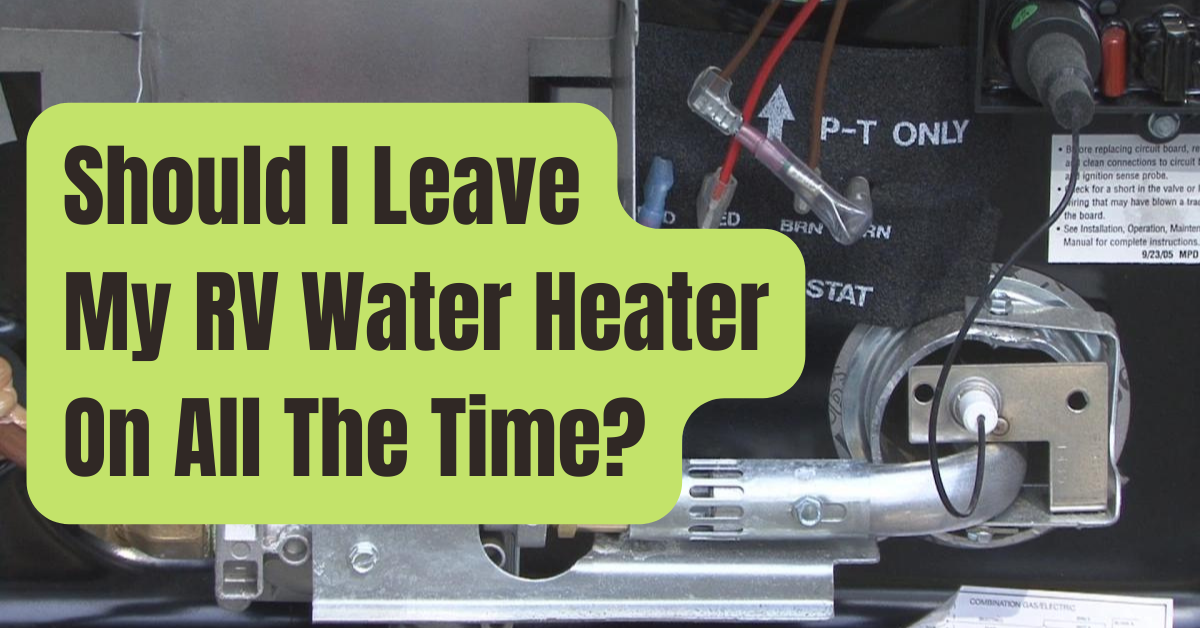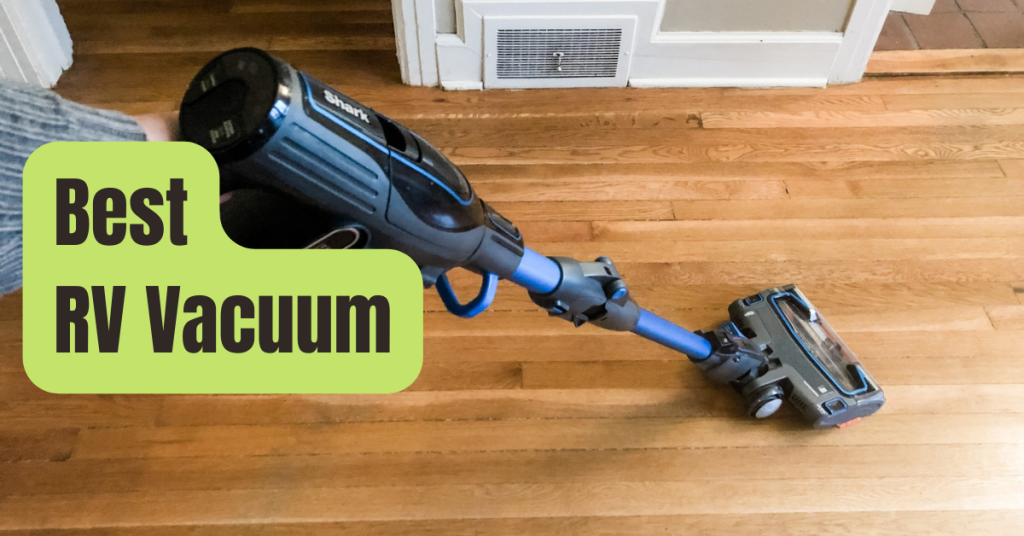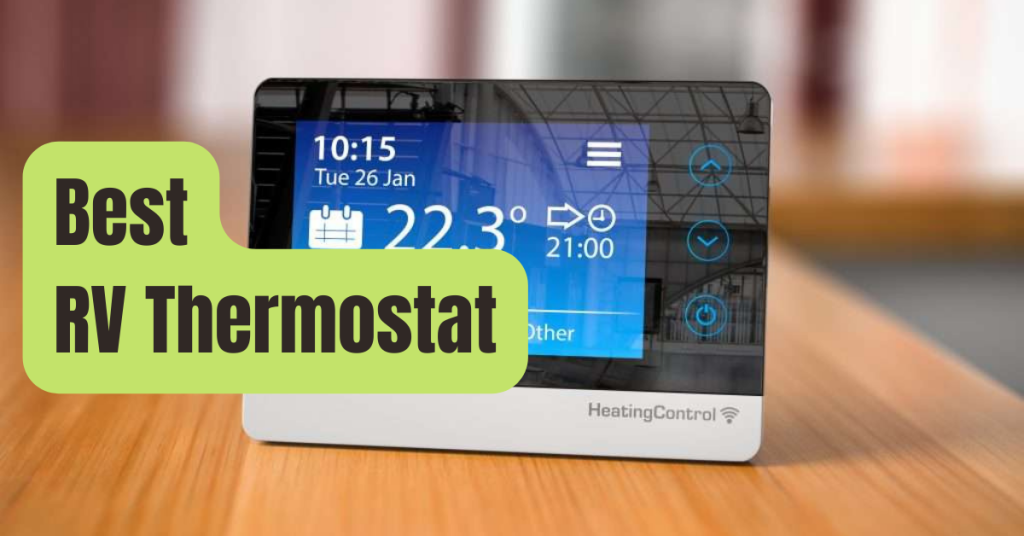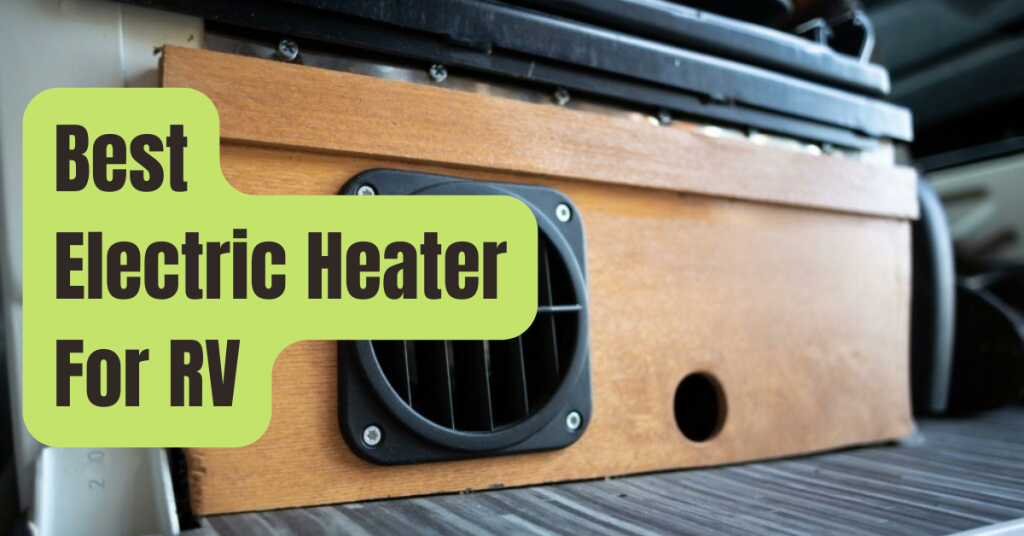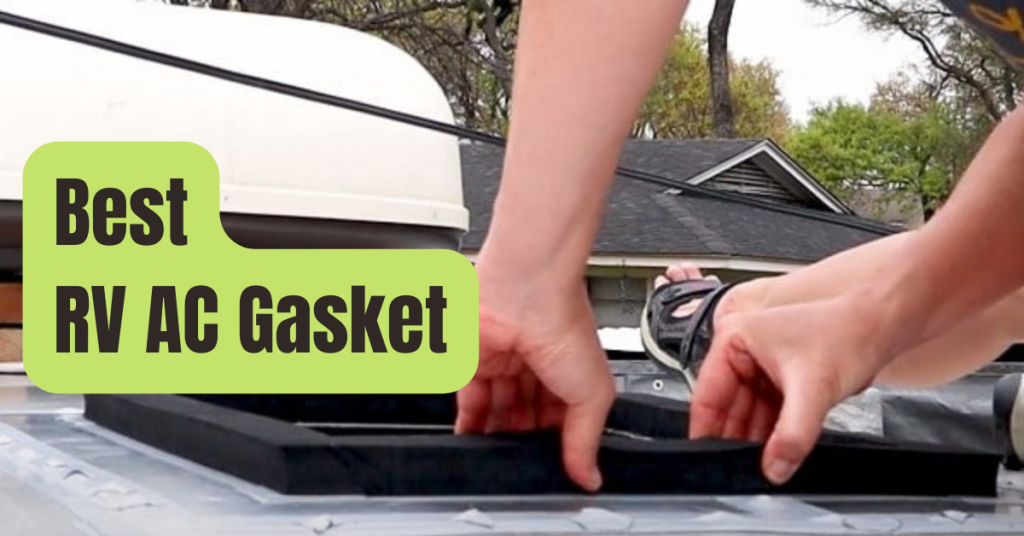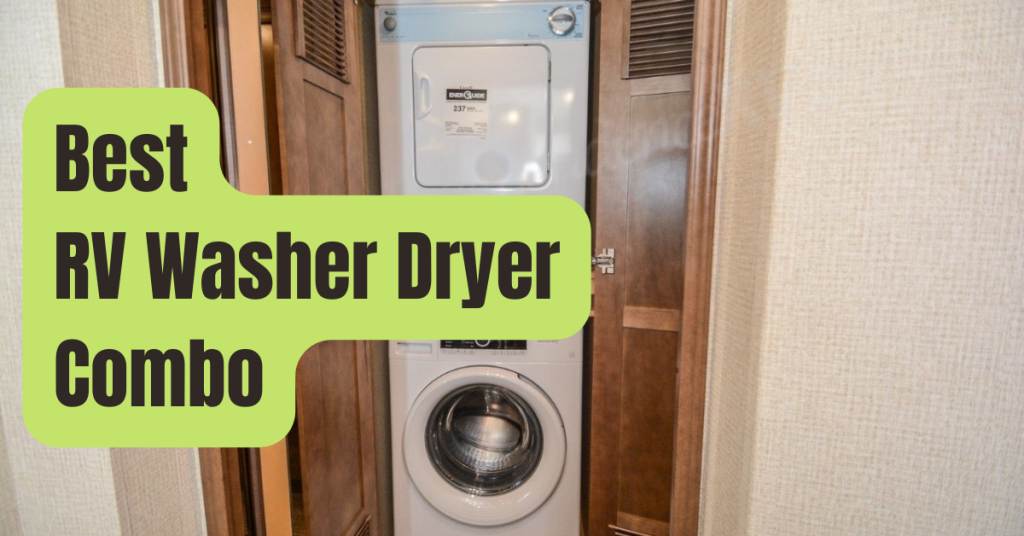Anyone would never like taking a shower in an RV with cold water.
Your RV water heater serves this purpose.
But should you keep it on all day or turn it off? Do water heaters in RVs often operate similarly to those in homes?
Like at home, it’s safe to keep the water heater running all the time in an RV.
Make sure that the heater is continually filled with water.
Additionally, make sure it is off before moving your RV.
Both leaving it on and turning it off have advantages and disadvantages.
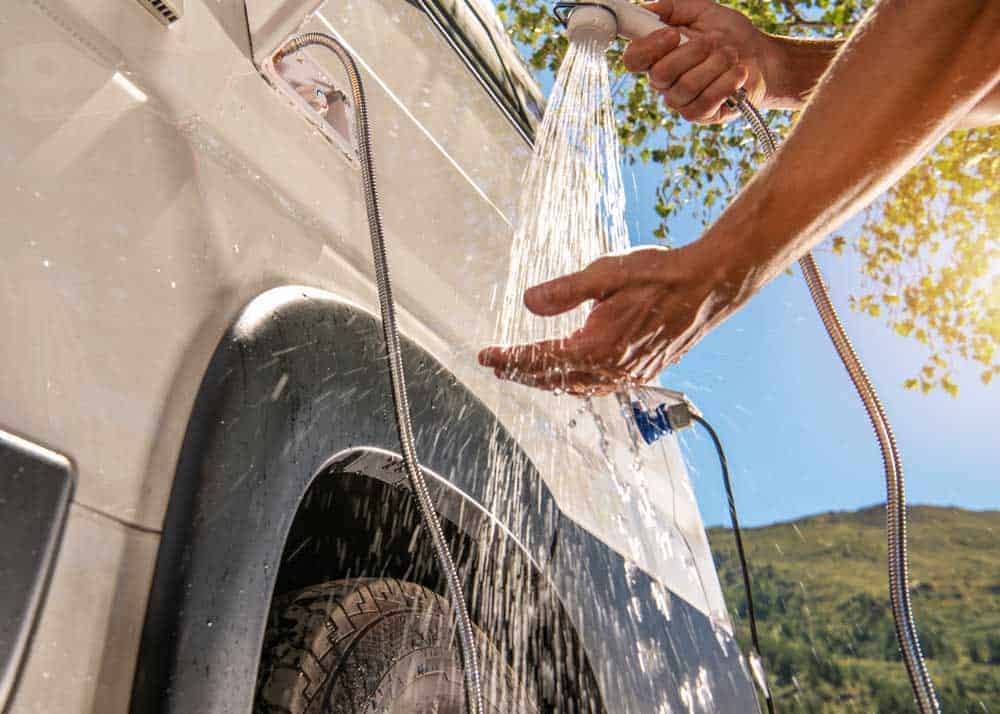
Knowing how to utilize the water tank properly on a camper or recreational vehicle is vital, since it may lead to costly blunders and repairs on water heaters can be quite expensive.
As a result, even if you can leave it running, think about all the facts on what to anticipate if you do.
4 Things You Should Know About RV Water Heaters in Use
#1. Hot Water Tanks Cannot Be Left Empty.
It will probably be damaged if your tank empties while it is still running.
The elements may be burned out when the water is empty since they were designed to be used in water.
Make careful to restart the heater and the water supply after turning off the hot water tank in your RV.
#2. Before Traveling, Turn Off Propane Hot Water Tanks
You should always switch off your gas hot water tank before traveling, just like you do with propane refrigerators.
Running propane appliances on the road may be prohibited in certain regions.
especially in places like petrol stations and tunnels.
Make sure you are aware of the hazards and the restrictions.
#3. Before Traveling, Turn Off Any Electric RV Water Heaters.
Depending on your configuration, there are two causes for this:
You risk losing electricity if you run your RV water heater off of the batteries.
You can find yourself in a position where the tank is on and the water is turned off if you turn off your water before leaving.
Your components can burn out as a result.
#4.False Beliefs
It’s crucial to keep in mind that a water heater is not the same size as a home water heater when one keeps it running all day.
This implies that you cannot assume that you will be able to take lengthy showers just because you keep the water heater on all day and have hot water available.
In fact, it’s not unusual for campers to run out of hot water in the middle of a shampoo session so that the water can re-heat.
There isn’t a limitless supply of hot water in the tank.
However, because to its compact size, it will also heat up more quickly than a heater for a house.
Of course, you’ll get hot water as long as your propane lasts if you’re using a tankless water heater.
RV Water Heaters: 3 Energy Sources
In most cases, propane, electricity, and in rare cases even engine heat exchange are used to heat RV hot water heaters.
Benefits and Drawbacks of Leaving Your RV Heater On
The decision to leave your hot water tank on has benefits and drawbacks.
In general, it’s OK to keep the water heater on in your camper, but it’s crucial to consider the implications of your choice.
Advantage: Ready-To-Use Warm Water
You’ll always have hot water when you need it if you keep your water heater on.
The RV water heater takes time to warm up if it is switched off, so taking a quick shower is not an option.
Most people leave their water heater for the camper running since it works similarly to how you wouldn’t turn your water heater off at home because you would have to wait for the water to heat back up again.
Advantage: Convenience
The simplicity of not having to remember to switch it on each time you use it is another benefit.
It may be a great hassle to have to ensure that everything is up to code every time you start it up, particularly if various individuals are turning it on and off.
It is more difficult than necessary since we don’t know and have to verify whether the bypass is on after it is turned off.
It takes a bit less consideration and care if you leave it running while you are away.
It might be annoying to constantly check to see whether anything is on, particularly if many individuals are turning it on and off.
Cons: Financial and Energy Use
You may consume more energy than if you just turned your water heater on and off, depending on its size and operating characteristics.
Additionally, it will cost more money if you use more energy.
Some individuals don’t mind making just minimal preparations and waiting until the last possible moment.
It is different if the engine is used to heat your water heater (engine heat exchange).
It is possible to heat water while traveling so that you will have a ready supply of it when you get to your destination.
But if you often use your hot water and are using gas or energy, turning it off the rest of the time can make sense.
The running expenses might pile up even when the heater is not as large.
This is particularly valid for gas heaters.
Alternatively, if you use a generator to power an electrical heater.
These items have the potential to sometimes cause individuals to turn it off.
Using the Water Heater in Your RV
With the exception of its considerably smaller size, as was already discussed, using a water heater in an RV is quite comparable to using one in a house.
To prevent making expensive errors while changing it, there are a few things to keep in mind.
4. Basics of Water Heaters
- A recreational vehicle’s water heater is typically fueled by propane, however some models have the option of using electricity or both.
- The majority of sizes fall between a 6- and 10-gallon water heater. Knowing this is crucial since it eliminates the pointless concern of running out of something.
- If your water heater differs from others in any way, please refer to the manufacturer’s directions and instructions. However, in most cases, you will check the water heater’s bypass valve to make sure it is open so water may flow before your first usage.
- Allow the water to enter the main tank. To enable the onboard pump to pump the water, connect your RV to a local water outlet. The water will start to enter your heating tank after passing through your pipes. Once the water reaches your freshwater tank’s fill line, you may stop.
The first usage of your water heater is now possible.
Maintenance
The most crucial thing to bear in mind is to maintain your water heater.
While maintaining it is simple, replacing and repairing it is more difficult.
The following methods and ideas may help you save money on maintenance; keep them in mind, along with the consequences of not using them.
Annual Maintenance
Ask them to check the water heater while your RV is being serviced to ensure it is functioning correctly.
- They could advise getting an anode rod to handle the corrosion that a water heater will inevitably develop over time.
- A maintenance check helps prevent severe issues from developing from little erosion that goes unreported over time.
Draining and Cleaning the Water
When cleaning the water tank of the RV, it’s crucial to drain the water from the tank and pump.
- If the water tank were to run out, the accumulation of silt at the bottom may lead to erosion and the potential of frying.
- Water that is stagnant or unclean isn’t the best for bathing, cooking, or any other intended purpose.
It’s wise to examine the water’s quality before adding it to your tank.
Here’s how to top out your camping trip’s freshwater tank.
Winterization
When not in use, it is crucial to drain the water in order to prepare for winter.
It’s probable that the water in your tank may freeze and shatter the tank and any associated pipes if you don’t empty it for the winter.
Learn more about adding antifreeze to your RV camper by reading on.
A 16-step checklist for winterizing your RV is also provided.
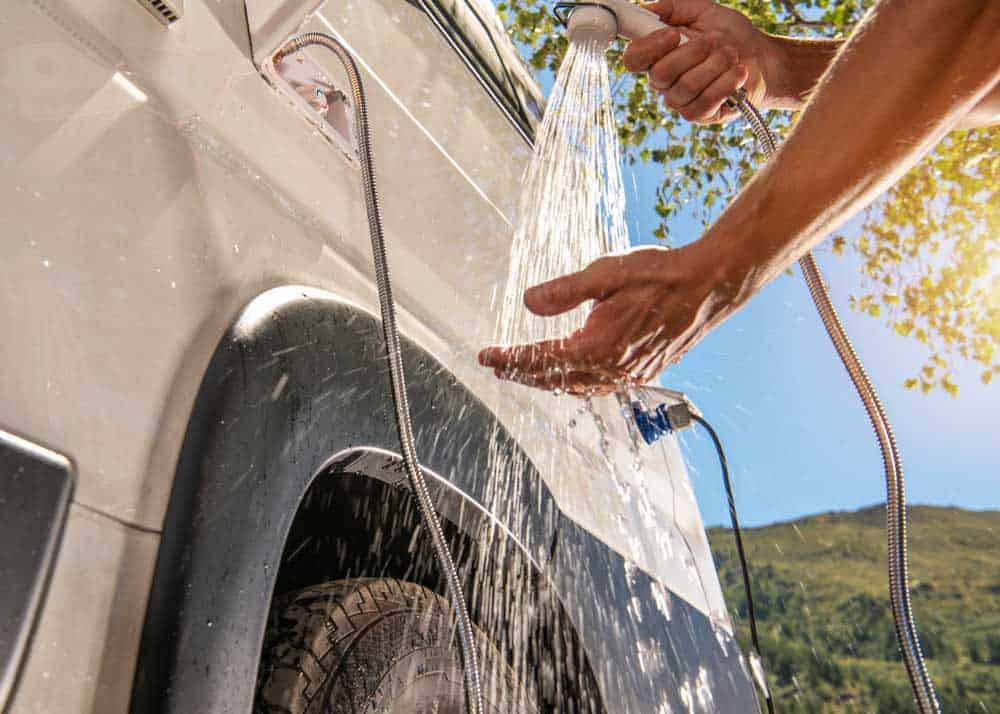
When sanitizing your RV’s fresh water tank, you should absolutely switch off your heater.
Final Reflections
The majority of folks keep their RV water heater on all day.
It takes far less effort and is more practical.
Others, however, choose to disable it in order to save money for their camping vacation.
And to lessen their influence on the environment.
Some RVers believe it’s just beneficial to take a break.
But ultimately, using your water heater continuously is normal.

